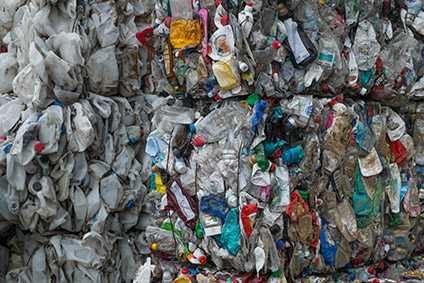
Mondelez International, Mars and PepsiCo are also part of the Flexible Plastic Fund initiative, which has received the support of UK retailers Sainsbury’s and Waitrose, and more are being encouraged to join as the consortium seeks to “help make flexible plastic recycling economically viable for recyclers and easier for consumers”.
“In collaboration with manufacturers, retailers and recyclers, the Fund intends to improve flexible plastic recycling and reduce plastic pollution by giving the material a stable value,” a joint statement explained. “This will in turn increase the supply of recycled plastic enabling industry to become more ‘circular’ and meet the forthcoming UK plastic packaging tax obligations. This will motivate investment in much needed jobs and infrastructure to make flexible plastic recycling a financially sustainable system in the UK.”

Discover B2B Marketing That Performs
Combine business intelligence and editorial excellence to reach engaged professionals across 36 leading media platforms.
Last year, the UK government finalised a wide-reaching plan to impose a tax on plastic packaging that does not contain at least 30% recycled plastic. It is due to come into effect in April next year with a levy of GBP200 on every tonne of plastic that does not meet the requirement.
Environment minister Rebecca Pow said in the statement: “Plastic pollution poses a major threat to our precious environment and wildlife, and that’s why the Government is committed to eliminating all avoidable plastic waste by 2042.
“Through our plans for consistent recycling collections, extended producer responsibility for packaging manufacturers, a deposit return scheme for drinks containers, and a world-leading plastic packaging tax, we will go further and faster to recycle more plastic and throw less away.
“I very much welcome the new Flexible Plastic Fund which will help to recycle more plastic, and I encourage retailers, manufacturers and recyclers to lend their support.”

US Tariffs are shifting - will you react or anticipate?
Don’t let policy changes catch you off guard. Stay proactive with real-time data and expert analysis.
By GlobalDataThe Fund is being led by producer compliance scheme Ecosurety, with support from the environmental charity Hubbub.
Only 16% of local authorities in the UK provide household collection services for flexible plastics such as plastic bags, wrappers, films and sachets, according to the statement. As a solution, the Fund is offering a “minimum value of GBP100 per tonne of recycled product to incentivise recyclers to process flexible plastic”.
Louise Stigant, the UK managing director at Mondelez, added: “Making our snacks sustainably and in the right way is at the heart of our purpose. Increasing the recyclability of our products and creating a circular economy so our packaging stays within the economy and not the environment is a priority for us. The Flexible Plastics Fund is an important step to ensuring packaging is collected, sorted and recycled in the UK. Meaningful change can only come when everyone collaborates, from companies, governments, waste management organisations to consumers.”
Sainsbury’s and Waitrose have signed up to the initiative by providing flexible plastic collection points in selected stores across the UK and others are set to follow that example.
Claire Hughes, director of production, packaging and innovation at Sainsbury’s, said: “We’re proud to sign up to the Flexible Plastic Fund and becoming members of the initiative is the latest move in our mission to reduce, reuse, replace and recycle plastic in our own operations. Joining the Fund will give our customers access to a flexible plastic recycling system that we can all have confidence in. As part of our commitment to reduce plastic packaging by 50% by 2025 across the Sainsbury’s business, we’re dedicated to working with our suppliers, manufacturers and third-party organisations to continue exploring innovative ways to support a circular economy and to make it as easy as possible for our customers to recycle.”
According to the statement, flexible plastic represented 22% of all UK consumer plastic packaging in 2019 but only 6% was recycled because it must be processed in a different way to other plastics to avoid contaminating rigid plastic recycling and clogging up machinery.
At least 80% of the plastics collected will be recycled in the UK, rising to 100% by 2023.
“Until 2023, where there are currently limits in UK capacity and technology, up to 20% could be exported to qualifying facilities in Europe only,” the statement continued. “All material will be fully traceable and tracked from the collector through to new products. Unlike many other schemes, recyclers will only be paid if the plastic is definitely recycled. The manufacturers contributing to the Flexible Plastic Fund will then be able to access the Packaging Recovery Notes generated by this high-quality, tracked recycling scheme.”
Robbie Staniforth, the head of innovation and policy at Bristol-based Ecosurety, said: “Historically, the UK recycling system has not provided enough motivation to recycle flexible plastics. By creating a sustainable market for this material, longer-term improvements can be made to ensure the flexible plastic that remains necessary for packaging is reliably recycled and eventually contributes to a circular economy, thereby tackling plastic pollution.
“We hope that by boosting this infrastructure, government and local authorities will be motivated to quickly facilitate flexible plastic recycling in the UK by making it easy for consumers to recycle via household collections in the future.”





